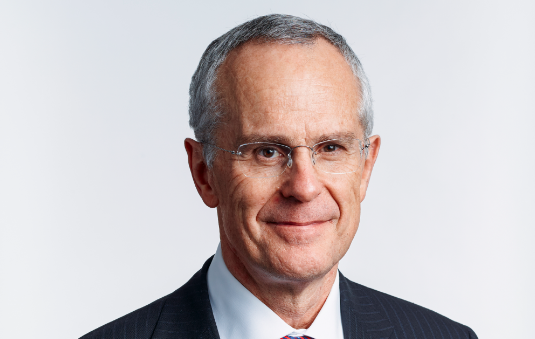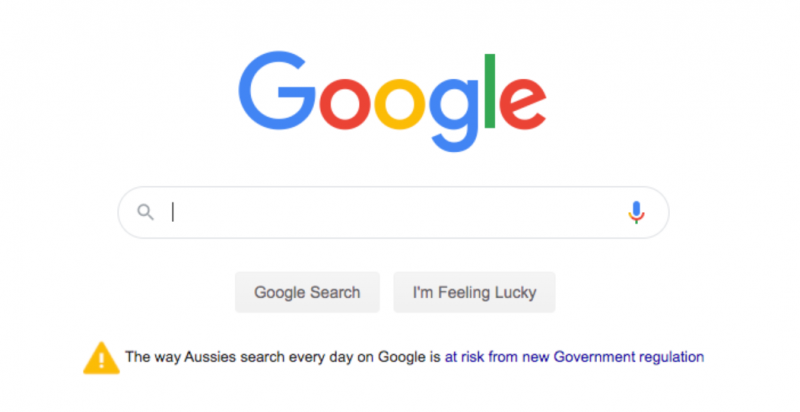‘Google and Facebook have as much in common as water polo and running shoes’: The fall out from Google’s open letter
Yesterday Google published an open letter to the Australian public, warning that the ACCC’s News Media Bargaining Code will significantly decrease the value of its Search and Youtube platforms for Australians. Parties from both sides have added their voices to the debate, here are their thoughts.
The open letter, composed by Google’s Australian MD Mel Silva, put forward to Australian consumers yesterday caused quite a stir across the industry. Silva warned that the Australian Competition and Consumer Commission’s (ACCC) News Media Bargaining Code would ‘hurt’ the way consumers used the Search and Youtube functions of its business.
The ACCC was quick to clarify some of the issues Silva raised. Referring to ‘misinformation’ in the letter, the watchdog said it wouldn’t be necessary for Google to change the use of its free services, unless it chose to do so.
Silva claimed in the open letter that the code would force Google to provide news media platforms with data that it could then no longer protect.
“You trust us with your data and our job is to keep it safe. Under this law, Google has to tell news media businesses “how they can gain access” to data about your use of our products. There’s no way of knowing if any data handed over would be protected, or how it might be used by news media businesses,” said Silva.

Sims has made it clear that Google won’t be forced to do anything it doesn’t want to do under the new code
But that won’t be the case, says the ACCC, and Google won’t be required to share any additional data unless it chooses to do so. The code will purely exist, argued the watchdog, to shift the power imbalance between the news media, Google and Facebook.
“A healthy news media sector is essential to a well-functioning democracy,” said the ACCC.
Neil Varcoe, a journalist and publishing fellow for the Google News Initiative, defended Google on Twitter, arguing that the tech giant has helped many news outlets in Australia with a variety of problems, including helping News Corp Australia move to digital.
Of all the clicks Google sends to publishers, argues Varcoe, which he estimates are around three billion, the platform pockets nothing in revenue.
Google was a partner at News Corp, helping us shift to digital with over 24 hours of free training.
They have helped me solve problems at other news companies.
I now work with them to help local and regional publishers build stronger news businesses.
(THREAD) 👇🏻 https://t.co/7cluyPtaeY
— Neil Varcoe (@neilwrites) August 17, 2020
“Why do people keep saying that Google and Facebook stole money from the news industry?” asked Varcoe.
“There are many reasons, but none of them stand up when weighed honestly.
“So what changed? What’s the problem?
“Audiences behaviour shifted, and publishers get paid less in digital.”
Publishers actually make their money from attention and from subscriptions and donations, so if consumers are focused on supporting the titles they love, they should do those things, he argued.
Another part of the problem, in Varcoe’s opinion, is the conflation of Facebook and Google.
Hey Craig, I think Google and Facebook have as much in common as water polo and running shoes, which is a big part of the problem.
The fact they they are grouped together in this way shows that we really have not defined the problem very well.
— Neil Varcoe (@neilwrites) August 17, 2020
“I think Google and Facebook have as much in common as water polo and running shoes, which is a big part of the problem,” he said.
“The fact they are grouped together in this way shows that we really have not defined the problem very well.”
Nine, which has seen its chairman Peter Costello claim that he would expect the platforms to pay $600m to publishers in the first year of the code alone, said it was ‘disappointed’ at the reaction from Google.
“It is disappointing that the global digital platforms are highlighting selected elements of the draft Code and presenting them in a way which does not accurately reflect the framework in which the draft Code will operate. For example, the suggestion that news media businesses will get access to data not available to other content providers is not consistent with the Draft Code. The implication that data provided to news media businesses will not be protected ignores the impact of privacy legislation on those news media businesses,” said a spokesperson for the media company.
“At Nine we maintain our position, which, at its core, means our premium journalism and content have a clear monetary value which these platforms should remunerate us for. We look forward to working with the ACCC on finalising the Code and then negotiating a fair outcome for our business with the digital platforms who will be subject to the Code.”
Free TV, the governing body for the commercial free-to-air broadcast industry, called the open letter a ‘cynical ploy’ to ‘mislead and frighten’ consumers.
Free TV CEO, Bridget Fair, said: “Google has shown once again how important free, strong independent news media industry is in Australia so that they can hold Google to account for pushing such deliberately inaccurate information to its users.
“These are the statements and actions of a monopolist flexing its considerable muscle to try and divert attention from the real issue—paying a fair price for the news content that creates value for the platforms.

Google has linked to its open letter on the Search homepage
“Google’s letter is straight out of the monopoly 101 playbook trying to mislead and frighten Australians to protect their position as the gateway to the internet. We’ve seen this kind of tactic before from big businesses trying to stop regulators from evening up the playing field so that they can hold on to excessive profits. Hopefully they will not succeed,” she said.
Google also issued a letter to its Youtube community, warning them that the code would have negative consequences for the way they earn income.
“Through this law, big news businesses can demand large amounts of money above and beyond what they earn on the platform, leaving fewer funds to invest in you, our creators, and the programmes to help you develop your audience in Australia and around the globe,” said Gautam Anand, head of Youtube APAC.
https://twitter.com/JosiahBrooks/status/1295270977920626691
It appears the message has already been well received with Youtubers. Across Twitter, there were calls from Youtubers for news media outlets to be stopped before they stripped away the communities ability to earn.
Google’s decision to link to its open letter from its homepage and from the Youtube homepage has forced the code into the public eye, and consumers who may not have been aware of the discussions between the ACCC, the news media and the tech giants are now making decisions based on the information provided to them by Google. How this will impact the ACCC’s code will unveil itself in the coming months of debate.


If I was Facebook I’d stop people posting links to Aussie news sites.
Only a small loss but better for the platform with less click bait news stories and resulting BS arguments.
Many people moved to Instagram to get away from these already.
These traditional media business are yesterday’s monopolies. It took Google and Facebook to create new services which consumers flock to. Now there is true competition the ACCC suddenly ants to get rid of it – we assume to stop once big now small news ltd from failing – under the guise of ‘protecting journalism’. Unfortunately the type of news that this proposed code will encourage will be more of the offensive cartoon genre like the one last week on the home page of The Un-Australian. Seems the ACCC should be sanctioned themselves for promoting anticompetitive behaviour!
Google in their letter said there was more to come in the coming days. It would be interesting if they closed down their news product for a week and see who really benefits from that product. I suspect it is the news companies who get more out of the situation.
Oh, so rather than fact based articles, written by real journalists, who must adhere to strict codes, social media users should be presented with even more ‘fake news’ that is matched to their ‘sentiment’ (decided by an algorithm) and often from dubious sources. As you suggest, this is already happening (‘people moved to Instagram…’), and what a wonderful time we are currently living in.
Oh, so rather than fact based articles, written by real journalists, who must adhere to strict codes, social media users should be presented with even more ‘fake news’ that is matched to their ‘sentiment’ (decided by an algorithm) and often from dubious sources. As you suggest, this is already happening (‘people moved to Instagram…’), and what a wonderful time we are currently living in.
Agree with anonymous. People use FB to connect with friends, family and groups. They’re not there to read BS articles from News Corp or Nine. If I’m seeing fake news or propaganda shared from a distant “friend” or organisation I tap the “unfollow” or “I don’t want to see this”. People should be in control of what they want to see on their own feeds – not Government or regulators.
FB Watch (their video platform) is a completely different proposition and revenue share commercial deals are already setup with news publishers.